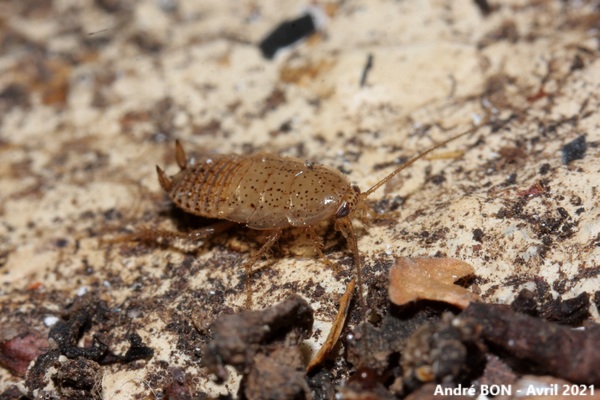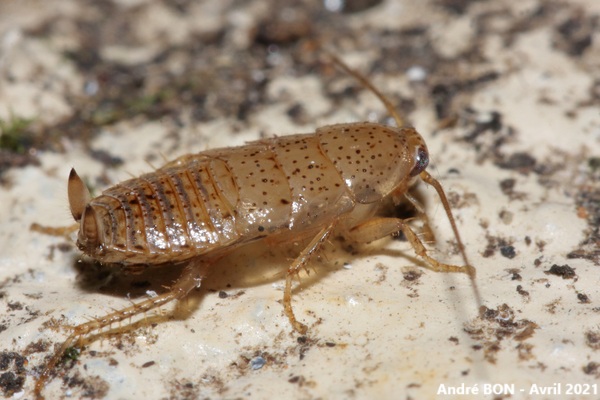

| Spotted Mediterranean Cockroach (Ectobius pallidus (Olivier, 1789)) |


|
|
Scientific name: Ectobius pallidus (Olivier, 1789) Common name: Spotted Mediterranean Cockroach Other names: Tawny Cockroach French name: Blatte pâle Order: Dictyoptera Family: Blattellidae Wingspan : 8-9.5 mm. Biotope: Wooded areas, parks, gardens, meadows. Geographic area: Western Europe, Southern Europe. Introduced to North America. Observation period : Adults: May to October. Adults die between September and October after females lay eggs in an ootheca. The eggs hatch the following spring and after 5 or 6 moults the nymphs overwinter to become adults the following spring. The cycle therefore lasts two years. |
Ectobius pallidus, like other members of the family, is an insect with a flattened body, spiny legs and long antennae. The Ectobius vinzi species was separated from Ectobius pallidus very recently. Ectobius pallidus is light yellow to beige in colour, sometimes slightly speckled with small brown dots. It bears translucent wings. The hindwings cover all the segments of the abdomen. Males show a tuft of black hairs on the upper side of the seventh abdominal segment. The larvae of Ectobius pallidus are yellowish with characteristic reddish-brown dots. Adults of Ectobius vinzi have wings that do not cover the entire abdomen. The larvae of Ectobius vinzi have a light yellow head and pronotum, a blackish abdomen preceded by a white transverse band. |
| [To know more about thela Spotted Mediterranean Cockroach] [Next picture] [Top] |

|
Here is a typical larva of Ectobius pallidus. Quite often I have doubts about the observed species. This is not the case here but this time the doubt is about the location of the observation. I file my photos quite a long time after having shot them and my memory is failing here as to the place (I'm getting older, a small notebook would be welcome). |
| [To know more about thela Spotted Mediterranean Cockroach] [Previous picture] [Top] |

|
Closer view. |